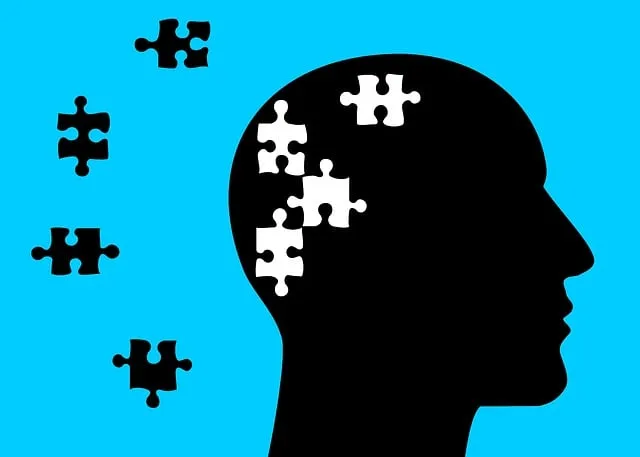Kaiser Permanente behavioral health providers in Denver prioritize coping skills development and emotional well-being through evidence-based practices like cognitive reframing, mindfulness, and social skills training. They offer a wide range of resources, including crisis intervention, long-term mental health management, and personalized therapeutic approaches, fostering resilience and promoting emotional intelligence for effective life challenge navigation.
Coping skills are essential tools for maintaining mental well-being, especially in stressful times. This article explores the foundational role of coping skills in promoting resilience and overall mental health. We delve into practical strategies that anyone can employ to enhance their coping abilities. By understanding and utilizing these techniques, individuals can navigate life’s challenges more effectively.
For those seeking support, Kaiser Permanente Behavioral Health Providers in Denver offer valuable resources, providing a network of experts dedicated to assisting communities in building resilience and mastering coping skills.
- Understanding Coping Skills: A Foundation for Mental Well-being
- Kaiser Permanente Behavioral Health Providers in Denver: Resources and Support
- Practical Strategies for Developing Effective Coping Skills
Understanding Coping Skills: A Foundation for Mental Well-being

Understanding coping skills is a fundamental aspect of fostering mental well-being. According to Kaiser Permanente behavioral health providers in Denver, it serves as a cornerstone for individuals to navigate life’s challenges effectively. Coping skills are essentially strategies and mechanisms that help people manage stress, emotions, and difficult situations without resorting to unhealthy behaviors or negative thought patterns. These skills enable individuals to adapt and grow in the face of adversity, enhancing their overall resilience.
The development of coping skills involves learning a range of techniques, from cognitive reframing to mindfulness practices and social skills training. The latter, as promoted by Denver’s Kaiser Permanente behavioral health providers, focuses on improving communication and interpersonal interactions, which are crucial for building supportive relationships and managing conflicts. Additionally, risk management planning for mental health professionals plays a pivotal role in teaching individuals how to anticipate and mitigate potential risks, ensuring they have the tools to maintain their emotional balance even in stressful situations.
Kaiser Permanente Behavioral Health Providers in Denver: Resources and Support

Kaiser Permanente Behavioral Health Providers in Denver offer a comprehensive range of resources and support for individuals seeking guidance and healing. These professionals are dedicated to assisting folks in navigating life’s challenges, promoting emotional well-being, and fostering resilience. With a focus on evidence-based practices, they provide specialized care tailored to unique needs, addressing concerns from crisis intervention to long-term mental health management.
The team at Kaiser Permanente Denver is equipped to support individuals experiencing a wide range of issues, including depression prevention and the management of chronic conditions affecting mental health. They utilize various therapeutic approaches, such as cognitive-behavioral therapy and mindfulness practices, to facilitate emotional healing processes. Their inclusive and supportive environment encourages open dialogue, ensuring that every individual receives personalized attention and care tailored to their specific needs.
Practical Strategies for Developing Effective Coping Skills

Developing effective coping skills is a valuable asset for maintaining mental wellness, and Kaiser Permanente behavioral health providers in Denver offer a range of resources to support individuals in this journey. One practical strategy involves cultivating emotional intelligence (EI). EI refers to our ability to recognize, understand, and manage our own emotions, as well as empathize with others. By enhancing EI, individuals can improve their emotional regulation skills, leading to better coping mechanisms. This includes techniques like mindfulness meditation, which helps in staying present and grounded, allowing one to respond to stressful situations more adaptively.
Additionally, engaging in regular physical activity and prioritizing self-care are essential coping strategies. The Mental Wellness Podcast Series Production by Kaiser Permanente Denver provides valuable insights into various aspects of mental wellness, encouraging listeners to incorporate these practices into their daily routines. From yoga and journaling to spending time in nature, such activities promote relaxation, reduce anxiety, and foster a sense of calm. Combining emotional intelligence development with healthy lifestyle choices equips individuals with powerful tools to navigate life’s challenges effectively.
Coping skills development is a powerful tool for maintaining mental well-being, especially with the support of resources offered by Kaiser Permanente behavioral health providers in Denver. By understanding effective coping strategies and putting them into practice, individuals can better navigate life’s challenges and enhance their overall resilience. With access to skilled professionals and practical tools, developing robust coping skills becomes achievable, enabling folks to lead happier, healthier lives.






